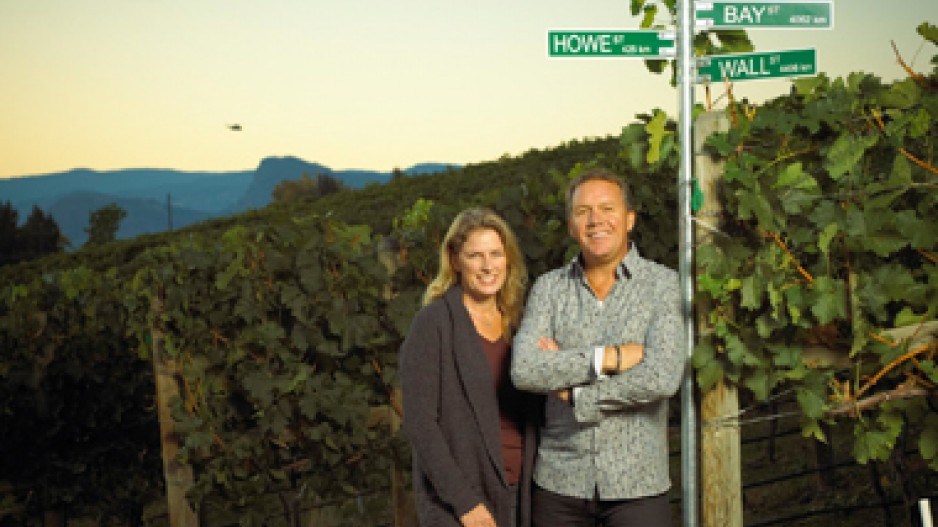Despite much ado about the rise of world-class B.C. table wine, sales in the province of wines marked with the esteemed British Columbia Vintners Quality Alliance (BCVQA) symbol are rising at a notably slower pace than sales for non-BCVQA, usually cheaper B.C. wines. And sales of BCVQA red wines have dropped, according to the British Columbia Liquor Distribution Branch (BCLDB).
British Columbians spent almost $390 million on the province's red, white and rosé wines in the 12 months ending June 30. Of that, only $173 million, or 44%, was spent on B.C. wines carrying the BCVQA mark, an indication the wine is made from 100% B.C. grapes and meets certain quality standards, including the approval of a tasting panel.
But while consumption of B.C. wines has grown steadily since 2009, growth in the sales of non-BCVQA wines has outstripped that of BCVQA wines.
Non-BCVQA wines are mostly wines that are made from a blend of B.C. grapes with others from around the world, and often made by large producers such as Constellation Brands, Inc. (NYSE:STZ) Andrew Peller Ltd. (TSX:ADW) and Artisan Wine Co.
In the 12 months ending June 30, sales of non-BCVQA wines grew 5.6% from a year earlier while BCVQA sales were only up 1.6%.
Part of the reason may be price.
The average price for the equivalent of a bottle of non-BCVQA wine sells for $7.20 before taxes. That's less than half the average $15.40 pre-tax price for the equivalent of a bottle of BCVQA wine, according to the BCLDB numbers.
But another reason may be the fact that consumers see the BCVQA brand as irrelevant to their purchasing decision.
Okanagan Crush Pad principal Christine Coletta believes that the BCVQA brand was crucial 20 years ago when the nascent industry needed to prove that B.C. wine was high quality.
That message has sunk in, she said. As such, consumers now make purchase decisions more on the reputation of the winery and on market image.
Laughing Stock Vineyards principal Cynthia Enns agreed and said that the only reason she takes part in the BCVQA program is to gain access to BCVQA stores and extra promotion in government liquor stores.
Boutique wineries such as Blue Mountain Winery and Nichol Vineyard produce high-quality wine priced comparably with BCVQA products but they have chosen not to pay BCVQA fees. Those fees include $0.10 per litre of wine sold, $10 per tonne of grapes used and $100 plus tax to register each wine listing.
"The fees pay for promotional activities in places where our wines aren't positioned," explained Blue Mountain principal Ian Mavety.
Blue Mountain sells most of its 15,000 cases of wine directly to restaurants and private liquor stores in Metro Vancouver and does not sell products in government liquor stores.
British Columbia Wine Institute (BCWI) chair Josie Tyabji told Business in Vancouver that one factor leading to the low numbers for BCVQA sales is the trend toward wines on tap in restaurants.
Vancouver Urban Winery is rapidly growing its business repackaging mostly BCVQA wine in 19.5-litre stainless steel tanks and selling those tanks to restaurateurs who sell wine by the glass. Unused wine is then not exposed to oxygen.
All of that BCVQA wine is then recategorized as non-BCVQA wine because all BCVQA wine must be in bottles.
The BCWI has applied to BCVQA regulators at the British Columbia Wine Authority (BCWI) to change rules so BCVQA wine could be in alternative packaging such as boxes and tanks.
Winery owners and other BCWI members would have to vote to approve that change. •




